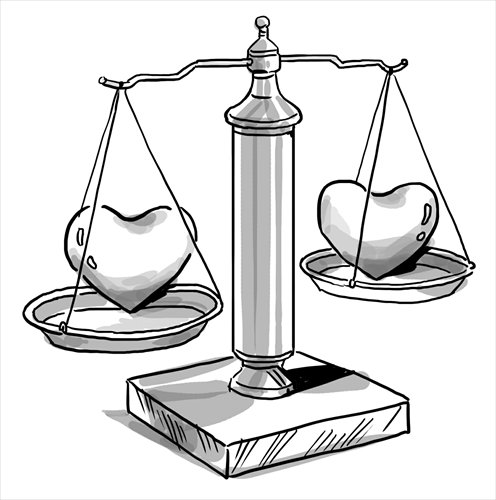HOME >> OP-ED
Unconditional aid shows true strength
By Ding Gang Source:Global Times Published: 2013-11-13 23:38:01

Illustration: Liu Rui/GT
After Typhoon Haiyan tore through the region, much of the central Philippines has been buried under heaps of rubble. Miserable scenes are playing out across the hard-hit areas, which have dominated headlines of media worldwide for days.
More than 10 million people have been affected by this super typhoon, which has killed over 10,000 people. The UN said it might be the strongest storm to make landfall in all of recorded history.
Direly needed food, water and medical aid are only trickling into the disaster-struck areas, where more than 400,000 victims still lack shelter. They are crying desperately for help from the rest of humanity.
On Sunday, an Airbus A340 that took off from Germany carried the first shipment of relief supplies to Manila, sparking a worldwide rescue effort. Even countries from thousands of miles away, like Chile, have extended a helping hand.
But unlike the international media, which is comprehensively covering this disaster, in the Chinese news it's been largely relegated to the world pages.
The Chinese reports on this disaster are basically quotes from the press releases of the Philippine government and some Western news agencies.
The calamity-struck nation is only two hours flight from Guangzhou, but few on-site reports can be seen in Chinese media.
China failed to answer the call of desperate need as quickly and generously as it could have. This kind of slow response, whatever the reasons, has shadowed China's image in the international community.
The lack of attention paid to Filipino victims shows that there is still a gap between China and the rest of the world, especially its neighbors. The gap is more a psychological than a geographical one.
Getting the much-needed supplies to the disaster-hit areas is not a problem for China. In fact, China sent a whole rescue team to Indonesia when the country was hit by the 2004 tsunami.
Psychological chasms are harder to span than geographic ones. The Global Times published an editorial on Tuesday, appealing for active Chinese rescue efforts in the Philippines. But online, most Chinese opposed such an appeal.
Some mentioned the islands spat between the two countries, while others said some regions in southern China were also hit by the disaster and the rescue should set these areas as its priority.
Some media outlets even commented that generosity should be given based on some "principles," arguing that it should be mutual, not a one-way route.
Turning humanitarian generosity into bartering reflects the limitations of Chinese thinking.
True generosity does not require payback. This attitude should be the only principle of philanthropy and relief assistance.
Relations among different nations and peoples cannot be limited to a callous exchange of interests. Only true generosity can help a country make good impressions on the world.
This is why Norman Bethune, a Canadian physician who sacrificed his life to aid the Chinese people in the fight against Japanese invaders in WWII, has been remembered from generation to generation in China.
A country's status on the world stage does not only rely on its economic and military strength. It is also determined by how much soft power it can master, which includes its approach to humanitarianism.
China's new leadership has proposed building "a community of common destiny" with its neighboring countries. Such a community cannot be simply established through the connections of rails, highways and airlines. Spiritual connection is equally important.
The success of a country's diplomacy depends on how far its people can see. An inhumane society cannot exert influence on the global stage.
Diplomacy is a game of physical interests, but it is also influenced by many psychological factors. If backed by humanitarian deeds, diplomatic efforts will be more credible and convincing.
The exchange and compromise of interests cannot make a country's diplomacy resonate; its charisma can only be amplified through ethical strength.
The author is a senior editor with People's Daily. He is now stationed in Brazil. dinggang@globaltimes.com.cn http://twitter.com/dinggangchina
Posted in: Columnists, Viewpoint